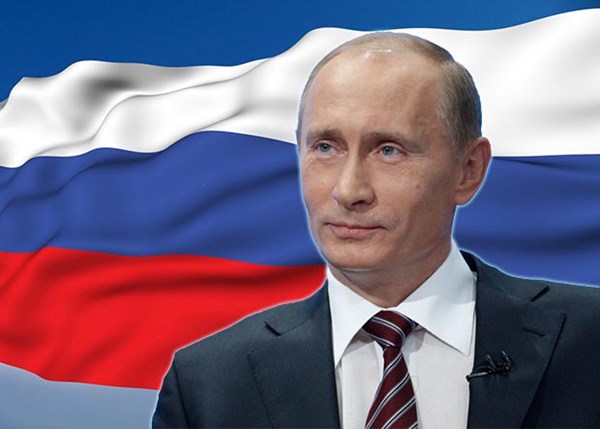Putin – From Aggressor to Peacemaker
“Participation in the Syrian campaign will help Putin return to a more favorable position in world politics. But, it will hardly change world leaders’ opinions regarding the Kremlin’s actions in Ukraine.” wrote Sergey Rudenko in a special comment for German broadcaster Deutsche Welle. Crimea’s annexation and the war in Donbas forced the West to implement harsh measures against Russia. However, the Syrian war and the union of Russia and France in fighting against the Islamic State may improve his standing among world leaders.
Both the European Union and the USA have welcomed Putin’s initiatives, but it doesn't mean that the issue regarding Donbas was removed from the agenda. Sooner or later, the West will have to return to the Ukrainian issue, as the outcome of the conflict has global implications.
Putin’s Syrian accent
Vladimir Putin, having lost his foreign-policy capital with the annexation of Crimea and military actions in eastern Ukraine, has decided to change direction.
The campaign against the Islamic State allowed Moscow to shift the focus from Putin’s actions in Ukraine and stand as one of the leaders fighting against international terrorism. Both European powers and the USA accepted Russia’s assistance following the tragedy with Russian Airbus A321 in Egypt and terrorist acts in Paris. The Russian military campaign in Syria started on the heels of the stalled negotiation process regarding the future of Donbas.
In October, it became clear that neither the Minsk nor the Norman formats are able to resolve this situation. Moscow was and is on the side of the Luhansk People’s Republic and the Donetsk People’s Republic. This stance hampers the efforts of negotiators in reaching a compromise. Will world leaders forgive Putin’s annexation of Crimea, military actions in Donbas and the alleged involvement in the shooting down of a Boeing aircraft, due to his active participation in the Syrian campaign?
The fact that Putin is in an anti-ISIS coalition won’t result in sanctions being lifted. Putin remains responsible for the conflict in Ukraine, and not even a complete victory over international terrorism can absolve him of that.
Raising the stakes
Putin’s efforts in Syria are an attempt to try and prove himself as a strong geopolitical player. The Russian president is a prudent and sly politician, who is not afraid to take risks. Putin continues to play this risky game which has led him to recent international isolation.
Events of recent weeks turned the Russian president into one of the leaders of a global of anti-terrorist coalition. A month ago, François Hollande appealed to Putin to influence separatists in both the Luhansk People’s Republic and the Donetsk People’s Republic to discontinue armed conflict. He has now come to Moscow to negotiate their joint actions on the elimination of ISIS militants with Putin. How long will Putin demonstrate his resolute in fighting against terrorism to his Western colleagues? It all depends on Russian interests.
Vladimir Putin expects both worldwide recognition and certain benefits and compromises from the West in return for his efforts in the war against ISIS. At the very least, he counts on the lifting of economic sanctions. If this does not happen, it is likely that Putin will raise the bar and demand more concessions. There is also no indication that he will change his position regarding Donbas.
Deadlock in Eastern Ukraine
The war in Syria and terrorist acts in Paris has overshadowed the war in Ukraine for now. Despite all the agreements, military actions in Donbas have not been stopped. Military and civilian deaths in the region continue, and the situation remains extremely fragile. None of the stipulations of the Minsk agreements have been upheld. Elections in LPR and DPR were postponed for an indeterminate period. Further, Ukraine hasn’t regained control of over 600 km of the Ukrainian-Russian border and separatists have yet to receive amnesty.
Currently, Europe and the USA have more pressing problems, and the Ukrainian issue has been temporarily postponed. This is reflected in its absence in discussions at the G20 Summit in Turkey. It was not the first or even the second item on the world leaders’ agenda. Under the present circumstances, Kiev and the leaders of Donetsk and Luhansk separatist republics are being left to address their problems. Kiev did begin the process of amending the Constitution, providing for the empowerment of disputed regions and has demonstrated readiness to make concessions to end the conflict.
The leaders of the Donetsk and Luhansk republics who are controlled by Moscow remain steadfast in their position. This conflict will not be resolved without the active participation of both the mediators and the political will of Russia.
